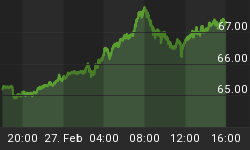Housing as a percent of GDP peaked in 1980 at 19%. In 2005 as the housing bubble was set to pop it represented 18.5%. Today it stands at 15%, still a large piece of the economy.
The part that is not measured (not sure it can be) is housing's impact on overall economic demand through the wealth affect. If someone is confident in the value of their home for example they are willing to invest in an addition or a remodel for example.

Today Zillow.com reported that home price depreciation accelerated in Q1 2011 at a rate last seen in 2008. In other words 15% of the economy has accelerated its contraction. Additionally they reported that a record 28.4% of single family homes (with mortgages) now have negative equity where the amount owed on their mortgage exceeds the value of their home. So the portion of the economy that cannot be measured (wealth affect on consumer demand) is also deteriorating.
That's why comments like the following are not only ignorant but just plain dangerous.
"it doesn't seem likely that we'll have a double dip recession. And that's because, among other things, some of the most cyclical parts of the economy, like housing, for example, are already very weak. And they can't get much weaker. And so another decline is relatively unlikely." Fed Chairman Bernanke
"We haven't needed (housing) for two years." Jim Paulsen, Wells Capital Management
"I really don't think the housing market per see affects anyone but those in the worst areas and the banks." Michael Cohn Global Arena Investment Management
Here's a scary reality for those 1 in 4 home owners who have negative equity. What if they lose their job, have a financial emergency, etc? If they can no longer afford their mortgage they also cannot afford to sell without bringing money to closing resulting in higher foreclosures and thus greater pressure on housing prices.
This begins to explain how important job growth is to this economy. Combine record job loss with a deteriorating housing market and you have one serious economic headwind.
Most important to any economy though is confidence. If people are confident they spend, they invest, they grow the economy. If they are not, they contract. Thus another unmeasurable impact on housing is its impact on overall consumer confidence.















